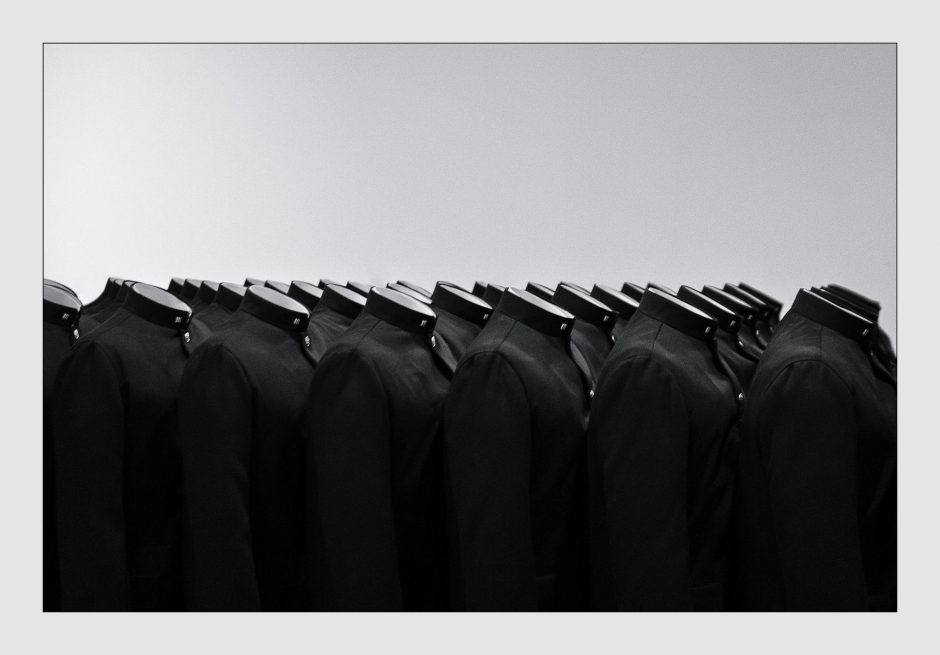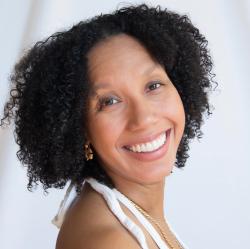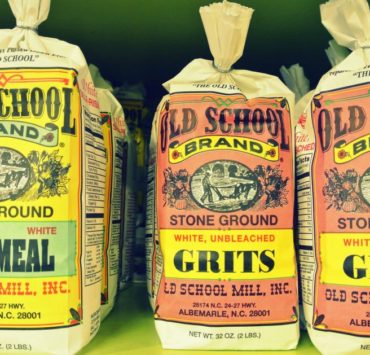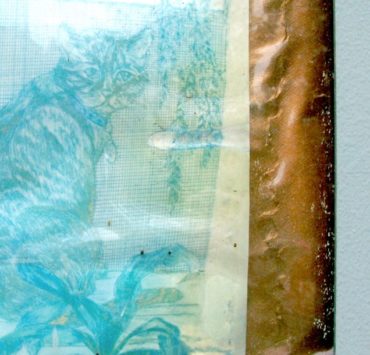
Thank you for that New Year’s Day. That day the monster was on my back. But then again, the monster has always been coming for me. I’m a warm blooded person. Because of where my blood comes from. Island blood. Thank you for that blood and for that island. But I had never been so cold. The monster was in the air. Maybe the monster was trying to nyam me, eat me. But there I was. I was the kind of boy, and I was still a boy, who would come to wear sweaters in the summers of South Carolina. But I’d kissed my mother that morning and climbed aboard a plane. Nothing with me but a bag. One change of light clothes, suitable for the West Indies, a toothbrush and a razor… the last because my mother had heard that there would be no one there who knew how to cut my black boy hair. She hadn’t thought about my needing a winter coat.
And thank you for that long plane ride where I was too excited to be scared and so watched the sky. And for that long sleepless bus ride where my fear finally kept me from rest. Thank you for this West Indian boy in a bus, me, not sleeping. But looking out of the window as it became winter before my eyes. Cold monster.
Did I clarify that it was New Year’s Day? That the kiss was my mother’s last gift? She was dying of cancer. Breast, though no one but me and a doctor from a different island knew. I wasn’t allowed to tell a soul because cancer of the breast or the uterus or any of the part of the body we call private, intimate, sexual—the parts we use for love—cancer there was a shameful thing. And so I boarded that plane and climbed onto that bus, heading to my own death, knowing I’d likely never see my mother again. But still, thank you for the burn in my mother’s breast. Thank you for her kiss goodbye that let me know it was indeed, goodbye.
I could tell you about my mother. I should. For even she is the monster—and her mother, too. I just want to explain how this goes. It’s a journey, but you’re not alone in it. You feel alone. But also you take the journey because you don’t want the loneliness. People don’t kill themselves over loneliness. Maybe they go off to war because they want to be left alone. Left alone and lonely. Different things those. But no matter to me. I didn’t want either. Just don’t be confused by my life. Or all these lives. I am so thankful for this journey. Thank you for my own memories and thank you for the memories that made me.
We can’t out run the monster. Run monster. Run. And girl, did they make us run that first night! The winter air like pins in my nostrils. I had a bloody nose before a mile. But kept running. Because the drill sergeant was shouting and because everyone else was running, too. No matter that I was in short pants in air colder than my mother’s refrigerator. Thank you, monster, for the short pants. Thank you for the ash on my knees that looked like a disease. Thank you for the blood in my nose that guzzled out and coated my mouth and neck and shirt and scared the sergeants just enough.
That night I shivered. So loudly that a bunk mate threw his blanket on me. Thank you sweet monster. Good monster. That extra blanket helped. I slept. But it started again and again. Every morning the blasted running. Every night the cold. And the sweating in the cold. And the sweat freezing me. And the letter in the mail before basic was even out, telling me that my mother was dead.
The question is what is at the middle. Of it all. What do you meet when you get there? I’ll tell you, even though I shouldn’t. Doesn’t matter. You’ll still have to do the thing to know it. So what’s at the middle? Myth and magic, both. No shame in that. It takes a village to raise a child but an ancestry to make a marriage. I would never have made it to my middle if it wasn’t for my mother dying and for my father being already dead. Because then I would have never have signed myself up for a war we would lose.
My father had been fighting a war his whole life. A white man, he was. From the continent. A proper American. But not white-white. Cajun, he always insisted. Had fought in a war or two. Seen nothing but combat. Finally too shocked in the mind and broken in body, and so found himself stationed in the Virgin Islands. But it wasn’t sunny for him. Lived on our island but lived like he was already dead. Away without leave in no time. Made a half-breed baby, who looked nothing like him. Me. Then sat down on the bench outside of a rum shop praying aloud to die until he did. But even that I’m thankful for. Thank you, old monster, thank you for my suicidal poppy. I went to the American war to out war him. But then my mother died and it was so cold and well…
That wasn’t my true middle. No. We are the middle. This right here is the middle. Always. Oh and I’m thankful for that. Because though everyone was heading to die in Ho Chi Min—I was not. Not me. It wasn’t that I had connections. No Rockefeller father to save my backside. No joining the Air Force instead of the Army. We didn’t even know about those way outs on the island. Army it was. Cold as hell at the base. No one could understand anything I said. I hadn’t learned to talk yankee yet. So I didn’t have to say a thing. All I had to do was fake sickness.
I’d been living with sickness for over a year. Close to it. My mother told me she never breast-fed me. Baby formula just arriving on island when I was born. Everyone thought it was better, best. And so she scraped to provide it for me. But then as a grown man I had to face her bad breast. The nipple sinking in. The huge red blister that took over. Until she dived into it, the blister and the breast. I was there taking care of sickness. Loving sickness. I knew it well. Thank you.
Black boy bile, they called it. In America, I was the black boy, despite my half-blood history. Coughing up spit. All fake, but it fooled them. It wasn’t that I was a coward. It was just that I realized I didn’t want to war with the history of my old man. I didn’t want anymore to hold up my life to his and see if mine was stronger. Not after my mother died. I never knew the man. He didn’t live long enough. He was my first monster. And I knew he would follow me. Has followed me. But with a dead mama… well. Well, I decided I wasn’t going. I wasn’t going to be the drink until I’m dead father, this time of half mongoloid children. But still. His story is mine because I lived against him. That made his life as much an influence as if I’d lived beside him. I didn’t get that then. But now I just thank God.
America believed me. Even though they couldn’t catch what I was saying. Even though I’d been a good talker back home. Talked to the down island doctor. Talked to my aunt about what to do in case my mother did go before me. They believed I was sickly. Too sickly to shoot a gun. Too sickly to even look like a good target. So sickly. Me? My whole life I’d had a cold but never the flu. I’d sprained my thumb once but never a wrist or an ankle. Sick wasn’t my thing. Until it was. Then faking it so well made it so real. Now that’s how you know me. Your poorly papa. Your hypochondriac dad.
So for me there was no walking amongst green trees that might make me long for home. No blinding light just before the rat-a-tat of a screaming enemy. No warm sweat in my face and pits. My war stayed cold and quiet. I was put to ironing the uniforms of those who came back dead. I ironed alone and in air condition. Had to keep the clothes crisp. Ready them for their formal funerals. Easy work on the body. Hard on the mind. Because it was Vietnam times. And so you know about the many who came back dead. And so you know about the many shirts I had to iron. And so you know about the many monsters that lived with me. I never fought in that war. I ironed. And even still, thank you for Vietnam. Thank you for every collar. For every sizzle of the metal when it kissed the starch. Thank you for the dead that came home for me to dress them.
“Poorly Papa? I’ve never called you that. Dad, I know you miss Steven. Okay? But you’re not dying over it.”
“We’re all dying, Sola.”
“You really are a hypochondriac. But this is my divorce. And it’s no one’s fault. I mean maybe it’s my fault and Steven’s fault. But not yours. Or Vietnam’s fault. Or whatever. Don’t get sick over it.”
That’s my daughter. Not realizing that it is my fault. And my parents’ fault. It’s true, I liked her husband. I mourn that monster, I do. But I’m not angry. Sola just needs to know that this monster is coming for her. Is always coming for her. The undershirts hot from the drier. How I was thankful for the heat in that cold cold room. The whole story. No clearing of light and jungle of grenades, just a landscape of stiff shirts. Pants with creases that could cut you. Being sickly since then is the small price I pay. I’m thankful. I’m only sick now because I wasn’t dead before.
So now it’s cancer they tell me. Like my mother. What else would it be? Mine in the private prostate. The story of the monster on my back, the monster on your back, is not just one of fathers and sons but also mothers and sons and mothers and daughters and even grandparents and aunties and first loves and who knows what else. But it’s all there. Meeting you in the middle.
When the government released me there was the Serviceman’s Act, the G.I. bill they call it now. It was that or keep working heat in the cold, pushing an iron was the only skilled I’d learned. Couldn’t go back home to the island just then, there was no home there yet. I needed another thing to keep me company until I figured it out. I didn’t want to be lonely and so I marched to Hampton University, where the black American kids went, like it was a duty. Yes, this is an American love story. Because on the first day of school the man said that thing that I gather now they always say: “The person sitting next to you might be your future husband or wife.”
I was at the end of the row. I’d been unsure about coming to the big meeting and snuck in late. On one side there was no one next to me. I stared at the empty space for a while to think about that. No one. It was so lonely ironing all those years. No buddies to grieve over because they were dead. They were dead when they came to me.
But thank you for that New Year’s Day. And for all the new years. I am thankful for all of it. Every bit. Because there in the great hall with that man talking about looking to our right and left… who was that man? I wish I could thank him. He spoke so well and so clear… I turned from the emptiness at my right. And there to my left was your mother. Looking at me like she’d been on a long journey just to get to that spot. And when she said “hello, nice to meet you, I’m…” I heard her accent. A Virgin Islander. Imagine that. First time I’d heard those islands sounds in so long. Sounded like my own mother.
Image Credits: Kitchou BRY

Tiphanie Yanique is the author of the poetry collection, Wife, which won the 2016 Bocas Prize in Caribbean poetry and the United Kingdom’s 2016 Forward/Felix Dennis Prize for a First Collection. Tiphanie is also the author of the novel, Land of Love and Drowning, which won the 2014 Flaherty-Dunnan First Novel Award from the Center for Fiction, the Phillis Wheatley Award for Pan-African Literature, and the American Academy of Arts and Letters Rosenthal Family Foundation Award. It was also listed by NPR as one of the Best Book of 2014 and became a finalist for the Orion Award in Environmental Literature and the Hurston-Wright Legacy Award. Tiphanie’s collection of stories, How to Escape from a Leper Colony, won her a listing as one of the National Book Foundation’s 5 Under 35. Her writing has also won the Bocas Award for Caribbean Fiction, the Boston Review Prize in Fiction, a Rona Jaffe Foundation Writers Award, a Pushcart Prize, a Fulbright Scholarship and an Academy of American Poet’s Prize. She has been listed by the Boston Globe as one of the sixteen cultural figures to watch out for. Tiphanie is from the Virgin Islands and is an associate professor at Wesleyan University. She lives in New Rochelle, New York with her husband, teacher and photographer Moses Djeli, and their three children.







